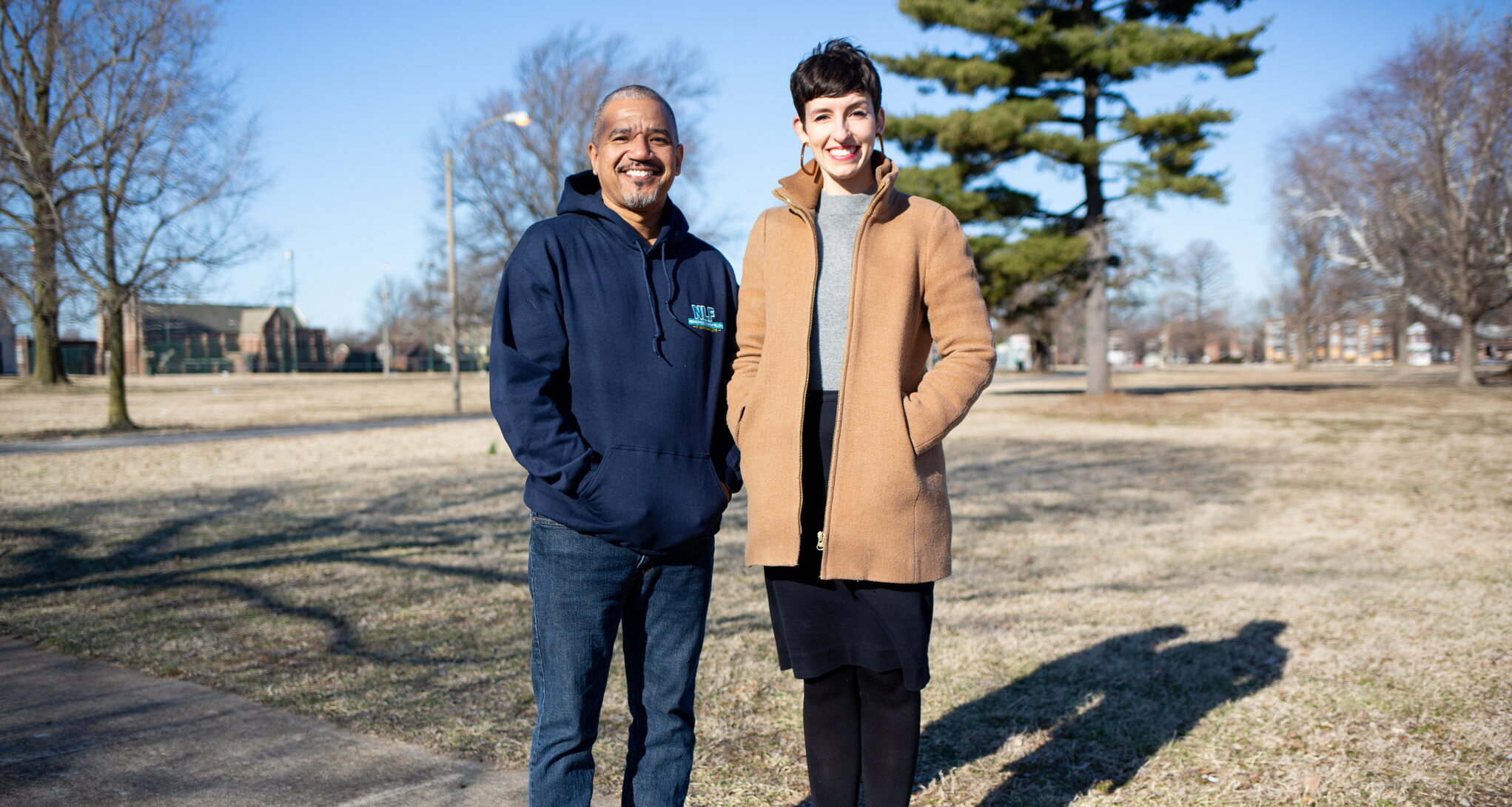Rewiring the System: A New Model for Civic Leadership in St. Louis

Dr. Dwayne T. James never imagined he belonged in the world of economic development. “I always thought that was out of my reach,” he says. “But I live in this community. I know what we need. That’s expertise too.”
That belief—that lived experience is expertise — is the foundation of the Civic Collaboration Fellows (CCF) program, a new initiative from MU Extension and the University of Missouri–St. Louis. Instead of creating plans in isolation and hoping they stick, the program invites leaders to co-create solutions — with shared ownership and shared responsibility.
“This work isn’t about coming up with a plan and handing it off. It’s about building it together — and doing it ourselves.”
— Dr. Dwayne T. James, University of Missouri Extension
The Problem Isn’t Just Policy. It’s Process.
For decades, efforts to address inequities in St. Louis have relied too often on strategies developed without direct community involvement. According to James, a former Ferguson City Council member and current community development specialist, that top-down approach misses the mark.
“You can build all you want,” he says. “But if the neighborhood doesn’t want it, it’s not going to succeed.”
The Civic Collaboration Fellows program is designed to address that disconnect by fostering genuine collaboration between those with lived experience and those with institutional influence.
How the Program Works
Each year, the program brings together five grassroots neighborhood leaders and five civic or industry leaders into a single cohort. These fellows aren’t just exchanging perspectives — they’re working side by side to design and implement community-driven projects aimed at improving economic mobility in the region.
According to MU Extension, the yearlong fellowship includes:
- Workshops and local immersion trips across the St. Louis region
- Learning exchanges with peer cities like Memphis, Baltimore, and Detroit
- Coaching and support from local and national experts
- A $20,000 strategic planning project developed and led by each cohort
- $2,500 stipends to recognize the contributions of each fellow
CCF launched in October 2024, with the first cohort beginning in October 2025. Over the next four years, the program will engage 30 fellows from St. Louis City and North St. Louis County.
Why It Matters
James argues that building civic capacity is as essential as investing in physical infrastructure — especially when it comes to tackling root causes of inequality. “When we talk about infrastructure, we usually mean roads, pipes, or buildings,” he says. “But what about people? What about the relationships and trust it takes to keep a community moving forward?”
The CCF program is rooted in that philosophy. Rather than a one-size-fits-all training, it’s a structure for authentic partnership — designed to help leaders build skills, test ideas, and forge connections that last beyond the program itself.
The model also reflects a shift in thinking among local institutions. As James explains, meaningful change requires more than occasional community input — it requires shared decision-making, even when that’s uncomfortable.
“I have to be willing to give up what I think success looks like,” he says. “Be willing to share my voice, but also listen to others. Especially in a region like St. Louis, where sometimes it’s easier to focus on what divides us than what connects us.”
A New Blueprint for the Region
Participants are asked not just to engage — but to lead. And that leadership looks different for every cohort. Neighborhood fellows bring deep community knowledge and on-the-ground credibility. Industry fellows bring networks, influence, and access to capital. Together, they learn to navigate conflict, find common ground, and co-create plans that reflect both community need and institutional capacity.
The result isn’t just a project — it’s a proof of concept for how cross-sector collaboration can work in practice. And it’s a direct response to what many local residents and civic leaders have long said: St. Louis needs not just new policies, but new ways of working together.
As James puts it, “This is about doing the work. Not waiting for someone else to pick it up, but being the ones to carry it forward.”
Because civic infrastructure doesn’t just mean strong institutions. It means strong relationships — built on respect, shared purpose, and the belief that progress only works when it works for everyone.
